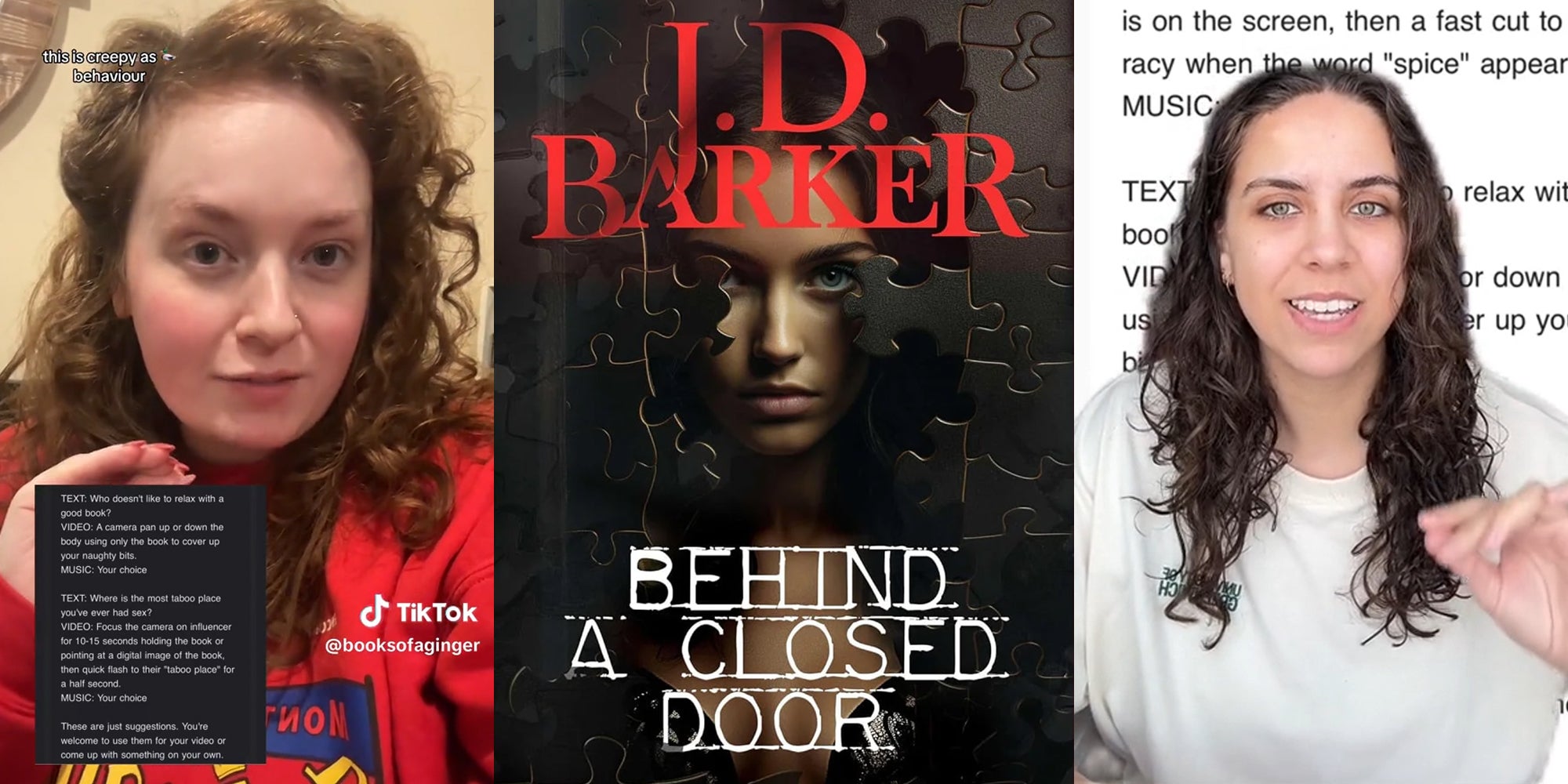
“Behind A Closed Door,” a new book by J.D. Barker, was touted by Simon & Schuster as “Fifty Shades of Grey meets David Fincher.” But now, the book might never see the light of day after numerous BookTok creators accused Barker, a New York Times bestselling author, of sending them inappropriate messages.
A number of creators on BookTok received an email that was sent by Barker’s personal email address, although it was signed off by ‘Julia’ rather than the author himself. In it, influencers were asked to make “racy content” to help promote the book’s May release, with the email listing ideas like “using only the book to cover up your naughty bits.”
But even more disturbing is the part of the email where it said that Barker needed to “personally review” each video before the creators could even get paid.
Unsurprisingly, BookTok was horrified by the email, with a number of creators making TikToks calling out the J.D. Barker email or speaking to the media about their outrage.
Creator Tishni Weerasinghe, for instance, described it as “disrespectful and demeaning” in an interview with Yahoo, while creator Siân Harper told NBC she was “grossed out” by the email.
“If that’s the kind of content that you want to make, I will support you for making your own choices,” Harper told the outlet. “The issue comes when it’s men viewing women’s bodies as a commodity that they can buy and then sell.”
Initially, Barker told Yahoo that the email was created by an external PR firm, BestOfTikTok — but the initial email itself says that he is actually a co-founder of this company. Nonetheless, he told Yahoo he takes “full responsibility” for the email.
“I’m horrified such a message was released,” he added. “And I deeply regret the hurt I’ve caused to those who received it. I have nothing but respect for the writing community and the people who champion it, and I’ve let all of you down.”
Kelsey Weekman, the Yahoo reporter who broke the story, told Passionfruit what the fallout of all this might mean for the creator economy and BookTok moving forward.
“I think this incident showed how powerful it can be when creators speak out about feeling uncomfortable with influencer marketing plans,” Weekman said in a statement. “PR companies hold a lot of power — they have the money and the products that help creators continue making content — but that doesn’t mean creators should just be grateful for the opportunity and move along.”
“I also think [the campaign] revealed that sometimes companies think they have a say over what influencers do with their bodies when they’re marketing a product,” Weekman concluded, “and that’s just not gonna fly.”




